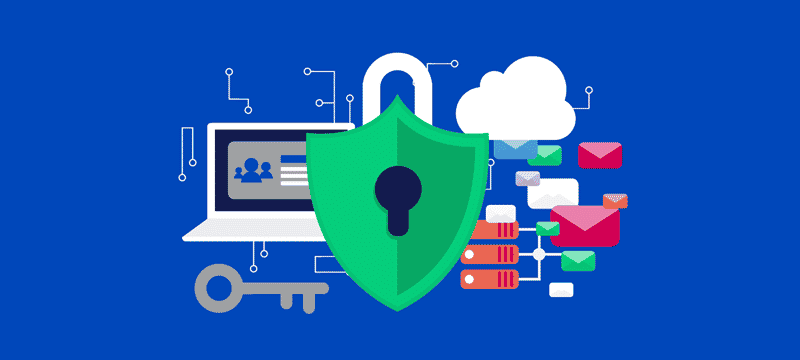Your website is your main entry point to the world and the information highway. You don’t want anyone to be able to access it, so you secure it with a password, lock it up with a security plugin, and only give people who know how to get in. But this is harder than it sounds. Anyone can find your website with a URL address or an entry point if they know where to look for it. From hackers who are trying to break into websites for fun, and cybercriminals who want to steal data and money from them, just like almost everyone else does when attempting to reach any online resource these days. Everyday new websites are being hacked at a record pace, so how do you stay secure? Here’s everything you ever wanted to know about website security
What is Website Security?
Security is a concept that refers to the ability to prevent the loss of something. It can be physical, such as money or food, or it can be something as intangible as privacy or trust. Website security is the process of ensuring that your website is protected from various types of attacks and threats. It’s very important to protect your website because you can lose a lot of money if someone breaches your server with malicious intent.
Why is Website Security Important?
You can only protect what you know. That’s why it’s so important to understand why you are securing your website in the first place. The most basic reason is that you don’t want anyone to be able to access your website. You want it to be secure, so only people who know the URL can get in. You also want to make sure that no one can access your server and steal data from it, like a hacker who wants to see if they can break into your bank account or see if you’re sending any private information over the network. You also want to make sure that no one can see what’s on your website, like a government who wants to see what you’re doing.
DNS behavioral analysis and Website Security
Imagine a scenario where a hacker gains control of your DNS settings, which are used to translate domain names like yourwebsite.com into IP addresses like 104.249.1.125. If a hacker can control your DNS settings, they can redirect your visitors to their own website instead of yours, allowing them to steal their data while they’re “browsing” it. DNS behavioral analysis is a way to block this kind of redirection, so you can protect your visitors.
HTML and website security
When you create a website, you’re creating the entire infrastructure on which the site runs. This includes everything from the code that makes up the site’s structure to the text, images, and scripts that make it interactive. Very few people realize that the code powering their website could be a security risk. For example, hackers could use any number of vulnerabilities to steal data or hijack your site. You can help prevent these risks by following best practices when creating your code. For example, you should avoid using vulnerable programming languages, such as PHP and ASP. You should also avoid outdated or insecure code practices, such as leaving backdoors in your site’s code.
JavaScript and website security
JavaScript is a programming language that you can embed on your website. It lets you do a lot of interesting things, such as let a visitor drag and drop an image on your site. It’s also a major source of vulnerabilities. Hackers and malicious websites can use JavaScript to steal data or hijack your site. To protect your site from these vulnerabilities, you can block all JavaScript in your web browser or use a code security service.
Summary
Website security is important because you don’t want anyone to access your website, see what’s on it, or steal data from it. You can protect your website with a password, a security plugin, and only giving people who know how to get in. You can also protect against redirection attacks by using a secure DNS, only using HTTPS, and only using secure HTML code. There are many other ways to protect your website, including hosting it on a secure server that’s not publicly accessible. Website security is important, but it’s not impossible. With the right tools and procedures, you can make sure your website stays safe.
Article Code: BD881DDR





Top site ,.. amazaing post ! Just keep the work on !